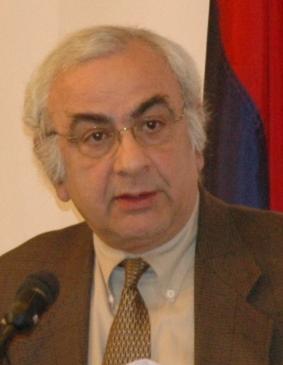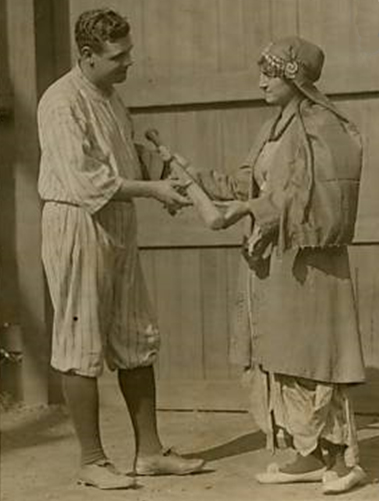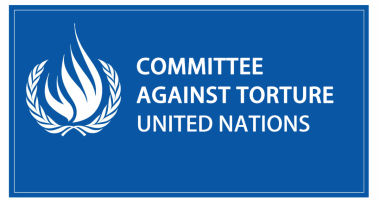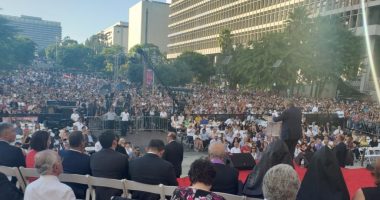By Gerard J. Libaridian
When the Justice and Development Party (AKP) and Recep Tayyip Erdogan came to power in Turkey in 2002, there were reasons to think that they would correct the state policies for dealing with history, particularly regarding the treatment of Armenians by the Ottoman government during the First World War.
Since their political philosophy is derived mainly from religious concepts rather than secular statism and nationalism, Erdogan and the AKP could have denounced those policies outright. In fact they could have pointed out that it was extreme statist and nationalist ideology, rather than Islam, that was responsible. He could have saved that dimension of Ottoman legacy that was tolerant by rejecting the extremist policies of the wartime Committee of Union and Progress (CUP) government as inimical to Islamic values; and if CUP policies can best be characterized as genocide, so be it.
When Erdogan came to power, he was much more open in his treatment of the Armenian issue; he wanted to leave history to historians. This was an opening, since the Turkish state had always dictated historical narratives down to every schoolbook.
The two protocols signed by Turkey and Armenia in October 2009 that aimed at the normalization of relations between the two countries had an indirect but clear reference to a joint study of the genocide issue. It appeared that Erdogan, with support from Gül, wished to move forward.
Even more significantly, in 2011, Erdogan apologized for the massacre of civilian Kurdish subjects in 1938 and 1939 in Dersim/Tunceli. The idea and gesture of an apology itself are more important than the details. No Turkish leader had ever apologized for an atrocious policy or crime that the Ottoman or Turkish state had ever committed against its own subjects. Additionally, Erdogan or Davutoglu have used the term genocide for situations that are far less sinister than what happened to Armenians in 1915.
Hence, instead of denying genocide, Erdogan could have opted for another method: The genocide of the Armenian people was committed by the CUP in power. And in committing that crime, the CUP was not acting as a Muslim government but rather as primarily a power-hungry clique that had taken over the government illegally in the name of a particular vision and used religion only to help make their policies work and “seem” sanctioned by the dominant religion, Islam. This is a perfectly legitimate political argument as well as a historically valid one.
Prime Minister Erdogan could have made that argument and resolved an extremely thorny issue; he would have gained international respect both from governments and from civil societies in a large number of countries it relates to. But that is not what has happened, not yet anyway.
By declaring that Muslims, by definition, could not commit genocide – as was the case regarding Sudan and Darfur – Erdogan might have thought he was saving Islam. In fact, by exempting authors of genocide who happen to be Muslims from that charge, Erdogan is making critical discussion, and historical analysis, irrelevant; and in doing so, he is creating more problems for the religion he is trying to save.
However, this is not first time that blinders have covered the eyes of a Turkish leader – no matter how liberal or reformist. The Armenian issue is, indeed, the blind spot of Turkish leaders’ vision.
When CUP came to power in 1908, it had two options. The first was dealing with the social and economic issues raised by Armenians. The second option was to see the Armenian Question as a foreign plot, therefore, subject to justifiable repression. The Young Turks started with the first and ended up opting for the second. The result was what happened in 1915.
When Erdogan came to power, he too had options: he could have seen the Armenian issue as a matter integral to Ottoman and Turkish history, a revision of which history being necessary to better pursue the democratization of the country; or, to continue the state policies on this issue as if it is a foreign-inspired conspiracy fueled by imperialists’ designs to break up Turkey.
Erdogan gave signals opting for the first; the question is, has he, too, ended up with the second option?
Gerard J. Libaridian is a historian who served as senior adviser to the first president of independent Armenia, between 1991 and 1997. This article is an abbreviated version of the original article published in Turkish Policy Quarterly (TPQ).
Hurriyet Daily News










